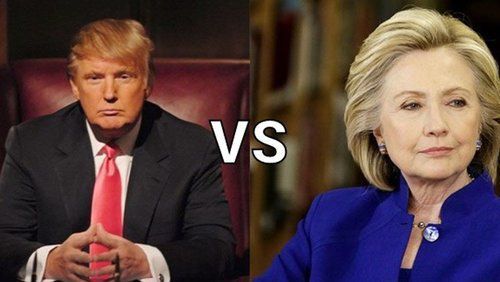


06/01/2018
iSteve commenter Lot notes:
I’ve been saying that for years, the leftist elites lost control of their pawns because of social media, especially twitter.
In no real way do blacks or the left benefit from the mob-sacking of Roseanne. 80-90% of the people losing financially from killing the show are likely on the left. But the elites couldn’t stop or even contain the twitter-mob.
You saw this too with Damore. He might have just been reprimanded, or quietly told he had three months to find another job, but a bunch of mostly freakish tatted up genderqueer Google employees threatened Google if he wasn’t fired and publicly denounced by management.
Part of the reason Hillary lost is she just looked and talked exactly like the stereotypical humorless HR enforcer of PC. You can picture Bill, or Bernie, or Obama, laughing off a tasteless joke, or telling one themselves to friends. But Hillary gave off many cues of being completely up to date with every PC speech rule and of always noticing and never forgetting any violation. At the convention she choose instead of racial gaffe-prone cool uncle Joe Biden the wimpy Tim Kaine who made sure everyone knew he spoke Rising Brown America’s Official Language. Then she had an angrily self righteous Muslim with a burka-wife shout racist at Trump, following up with that chubby drug cartel moll stunt at the debates to call him sexist because he had opinions about the looks of a beauty pageant contestant.
From National Journal:
Democrats Caught in a Culture-War Trap
Even as economic issues increasingly unite the party, the energy among Democrats is on cultural issues. That’s a long-term threat to their party’s political health.
Josh Kraushaar
@HOTLINEJOSHOver the weekend, New York Times columnist David Leonhardt wrote a thoughtful column arguing that Democrats have successfully bridged their ideological divisions. In it, he cited the campaigns of centrist Rep. Conor Lamb in western Pennsylvania and proudly progressive gubernatorial nominee Stacey Abrams in Georgia, and made the counterintuitive argument that they’re more alike than they appear.
Leonhardt’s argument was premised on the fact that both are running on populist economist issues. Like most other Democrats, Abrams wants to expand Medicaid coverage in Georgia. Lamb ran against House Speaker Paul Ryan’s entitlement reforms. “When Democrats talk about health care, education, and jobs, they can focus the white working class on the working-class part of its identity rather than the white part,” Leonhardt argues.
But Leonhardt all-too-conveniently sidesteps the most important lesson of our politics in the Trump era: that cultural and racial issues, not economic ones, are the driving forces behind voter preferences.